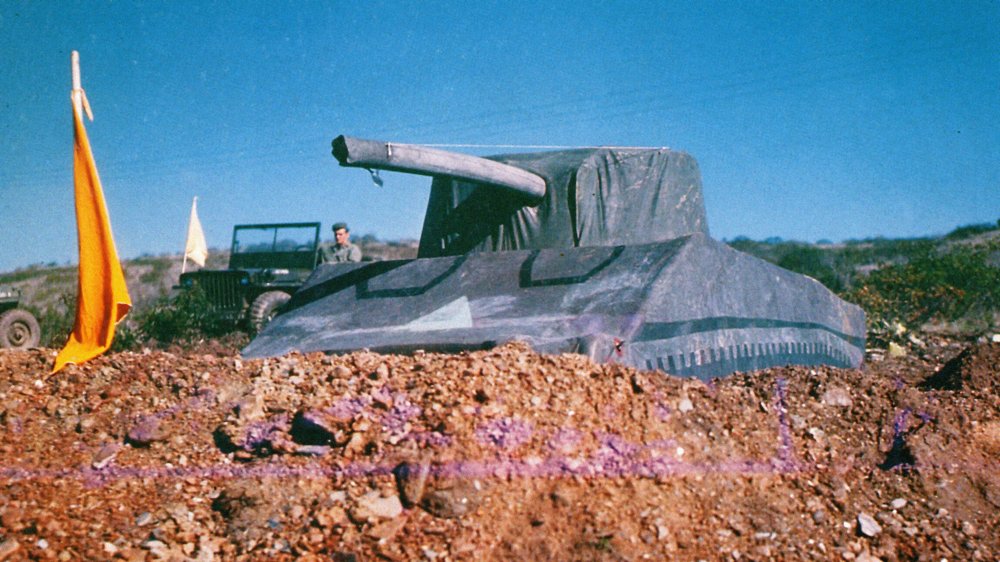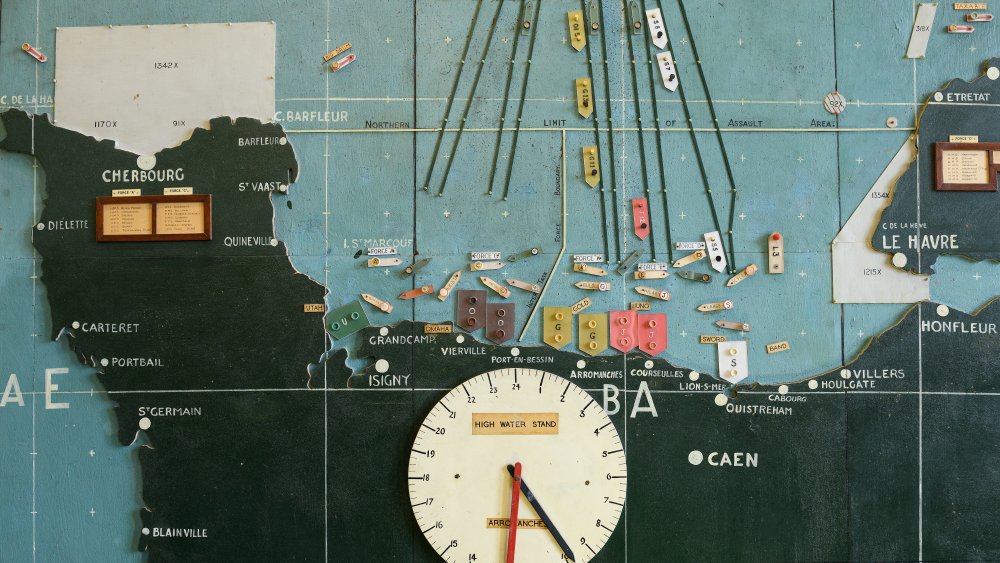The Ghost Army That You Didn't Learn About In School
The hapless Home Guard in the British sitcom Dad's Army relied on deception tactics like dressing sheep up in tin hats. Though played for laughs, the actual idea is not that far off from the actual Ghost Army of World War II, officially known as the 23rd Headquarters Special Troops. Their unique mission was vital in the weeks of preparation before and after the Invasion of Normandy. Assembled from a collection of admen and artists, the Ghost Army was assigned with deceiving the Axis forces. They did so, as their commemorative website describes, by "[employing] an array of inflatables (tanks, trucks, jeeps, airplanes), sound trucks, phony radio transmissions and even playacting to fool the enemy."
Their first mission was to assist the British Army with Operation Quicksilver, which was a part of Operation Fortitude and which, in turn, was part of Operation Bodyguard. War History Online cuts through the various code names. Operation Quicksilver was tasked with tricking the German forces "into thinking that the bulk of the Allied amphibious landings would take place on the beaches of Calais rather than those of Normandy." Other plans aimed to redirect German attention to other parts of Europe, such as Fortitude North's attempt to convince the Axis that it intended to invade Norway. An amphibious assault on a completely fortified beachhead would either prove a pyrrhic victory or a bloody defeat, so every trick was pulled out to reduce the defenses of the true targets of the invasion.
Shadow boxing
Fortunately for the Ghost Army, they could draw inspiration from the antics of Operation Bertram, another deception perpetrated against the Germans before the second Battle of El Alamein, on the western frontier of Egypt, in 1942. History of War's account of the operation describes assembling 400 dummy M3 Grant tanks as well as 1,750 other dummy vehicles and guns before pulling off a masterful double bluff: "On 15 October a set of dummy gun batteries were set up east of the Munasib Depression. After a few days the camouflage was allowed to slip to make it clear that these were dummy guns. The Germans noticed this slip, but the dummy guns were then replaced with the real thing. During the battle one German armoured column was caught out by this trap."
The Ghost Army built upon these foundations, adding sonic layers to further fool the enemy. "They produced a huge library of sound effects," Larry Decuers, a former U.S. Army infantryman with the 101st Airborne and a curator at the National World War II Museum in New Orleans, told Task and Purpose. "They recorded sounds of tanks going uphill, sounds of tanks going downhill — because to a trained observer they can definitely tell the difference. Also, sound effects of soldiers building pontoon bridges, even down to sergeants telling a private to 'put that cigarette out.'" In addition to recording the noise, the Ghost Army invented giant mobile speakers to further confuse enemy and unwitting ally alike.
Post-war
For all the creativity displayed by the Ghost Army, they never received much recognition. Some individual members enjoyed wild success, such as the fashion designer Bill Blass, the minimalist artist Ellsworh Kelly, wildlife illustrator Arthur Singer, and Art Kane, the taker of some classic 1960s rock photographs, as Rolling Stone reports.
With all that, even soldiers who served with Patton in World War II had never heard of the Ghost Army, as the director of the Ghost Army documentary Rick Beyer attested to Smithsonian Magazine. This is because the operations they conducted were considered classified until 1966 — 40 years after the fact. Until then, even those who partook couldn't talk about their adventures, not even with their families.
With the declassification of the information and the widespread appeal, the Ghost Army is being rewritten into World War II history, and with that, earning the praise it deserves. In August, 2018, History reported that Rep. Ann McLane Kuster and Rep. Peter King had introduced the Ghost Army Congressional Gold Medal Act which, if passed, would direct the Speaker of the House and the President "to award a Congressional Gold Medal to the 23rd Headquarters Special Troops and the 3133d Signal Services Company in recognition of their service during World War II." Senator Ed Markey introduced the bill to the Senate on May 13, 2019. Nothing has happened since.


